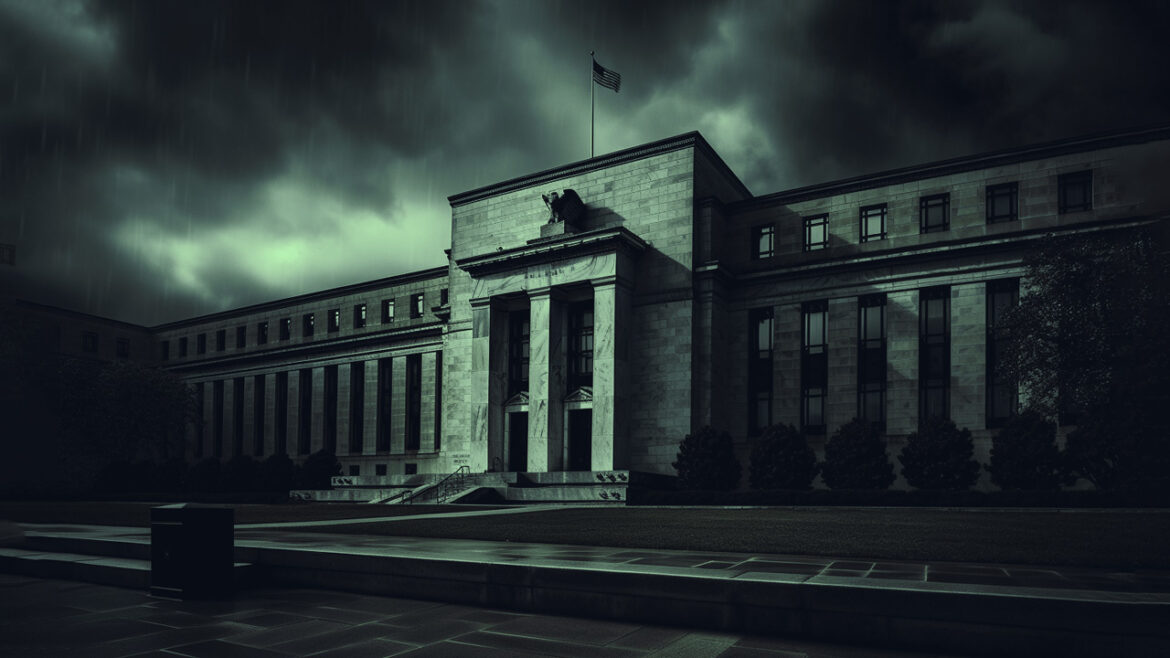Gold has all the potential to go unprecedentedly high. But silver will be gold on
Site:
Precious metals news
Jun 26, 2023 - 06:36:13 PDT
Despite hawkish remarks from Jerome Powell, gold retains its positive outlook. The Federal Reserve chairman's focus on inflation and potential rate hikes led to a temporary decline in gold and silver contracts. However, the Fed's true intention is to maintain a gradual depreciation of the dollar, rather than solving the inflation issue. Powell's concerns about de-dollarization demonstrate the importance of the dollar's reserve currency status. Gold remains a reliable measure of a currency's value, and its historical price increases indicate the declining purchasing power of fiat currencies. As central banks explore digital currencies, investors should be cautious as these currencies may face similar depreciation. Gold's long-term potential remains strong, with the possibility of reaching five-digit prices in the future.
 Federal Reserve’s Message to the Bullish Stock Market: We Will Break You
Federal Reserve’s Message to the Bullish Stock Market: We Will Break YouJun 26, 2023 - 06:30:19 PDT
Negative sentiment looms over the markets as the Fed asserts its power, potentially impacting AI stocks, tech giants, and Tesla. The Fed's pause on interest rate hikes has spooked investors, with expectations of further rate increases to tackle inflation. Central banks' surprises and the market's resilience are raising concerns. Goldman Sachs warns of downside risks, emphasizing the need for caution. Going against the Fed's actions is risky.
Government bonds rally while stock futures struggle as concerns grow over central banks pushing inflation-fighting measures too far. US Treasury yields drop, and Germany's benchmark yield tumbles as the business outlook deteriorates. Investors fear that aggressive rate hikes could harm fragile economies. Geopolitical tensions in Russia add to market uncertainty. Oil prices rise amid potential disruptions in global oil markets.
We tend to focus a lot on the Federal Reserve's interest rate policy, while the central bank's balance sheet stays in the background. But the balance sheet arguably has more impact on the economy over the long run.Since the Fed began hiking interest rates in March 2022, it has also shrunk the balance sheet. But balance sheet reduction hasn't been aggressive. In fact, the decline in the balance sheet since the pandemic is like a drop of water in the ocean compared to the massive expansion we've seen since 2008.
US Treasury faces a looming wave of debt sales, pushing bond yields higher. The surge in longer-term issuance, estimated at over $1 trillion in 2023, will strain borrowing costs. With the Federal Reserve reducing its balance sheet and dwindling demand from traditional buyers, the Treasury may rely on price-sensitive buyers, leading to higher premiums and tighter financial conditions. Currency hedging costs and a strong US dollar deter global investors. The combination of increased supply and positive growth raises concerns about the buyer base. Excess global savings are dwindling as debt supply rises, signaling higher interest rate bills ahead.
Japan is concerned about the rapid weakening of the yen and is considering all options to respond. The government wants stable currency movements based on fundamentals. The Bank of Japan's easing policies and the U.S. Federal Reserve's tightening measures have driven up the dollar. Authorities are monitoring the situation closely and may intervene if necessary. Last intervention occurred in October when the yen hit a 32-year low. Excessive currency moves are seen as harmful to Japan's economy and the global economy. The focus is on the pace of the yen's movement. Investors are selling yen after the Bank of Japan's decision to maintain its stimulus.
China's consumer-driven recovery is losing momentum as spending slows on various fronts, including travel, real estate, and automobiles. Weak holiday travel spending and declining home sales indicate a fading recovery. Economists expect more stimulus as confidence weakens. Mainland stocks decline, reflecting concerns about the economy. Some positive indicators, such as record-breaking box office revenue, contrast with overall sluggish spending. Speculation about increased stimulus measures grows, but the scale is expected to be limited. S&P Global Ratings lowers China's 2023 GDP growth forecast due to an uneven recovery. The government may consider easing housing restrictions and mortgage requirements to boost consumption. Consumer confidence remains slow,.
BIS warns of critical point in global economy, urges more rate hikes to combat stubborn inflation. Banking collapses and high debt levels pose risks. Central bankers gather in Sintra as challenges mount. Uncertainty remains as companies seek profit growth and workers demand higher wages. Last mile of reeling in inflation expected to be difficult with potential surprises.
 Final Stretch of Central-Bank Hiking Will Be Toughest, BIS Says: Bloomberg
Final Stretch of Central-Bank Hiking Will Be Toughest, BIS Says: BloombergJun 26, 2023 - 05:57:18 PDT
The global economy is facing a critical moment as tight labor markets drive wages and services inflation to uncontrollable levels, warns Agustin Carstens, head of the Bank for International Settlements. The ongoing cycle of interest rate hikes, although intense, is entering a challenging phase as inflation risks becoming deeply rooted. The Bank emphasizes that restoring price stability will be a difficult task, potentially requiring interest rates to remain elevated for an extended period, surpassing public and investor expectations.
Europe's bond markets ring recession alarms as tight monetary policies threaten economic growth. Yield curves invert, prompting investors to seek safety in long-dated bonds. Euro and pound weaken, while traders flock to the US dollar. Weak economic data fuels concerns. Long-maturity euro area bonds perform well. Risk of recession spurs demand for UK bonds, but pounds suffer. Yen emerges as a safe haven, and the US dollar gains support as a defensive asset.
The value of office buildings in New York City has plummeted by $76 billion, signaling a downturn in the commercial real estate sector. Rising interest rates, reduced credit availability, and the shift towards remote work have taken a toll on older office buildings and other real estate categories. Developers are returning obsolete buildings to lenders, foreclosures are increasing, and defaults are occurring in various sectors. The damage is expected to worsen as the storm continues, and property loans are being offloaded at a loss. With tightening credit markets and rising interest rates, only a small percentage of office buildings remain unaffected. The situation is compounded by uncertainty surrounding the future of office spaces.
Rising interest rates and an uncertain economic outlook are leading to a surge in corporate defaults in the US. Companies are struggling with higher debt refinancing costs, resulting in an increase in distress and bankruptcy filings. Multiple industries, including healthcare, retail, and media, are affected, with no specific sector being spared. Analysts anticipate further defaults as companies face challenges in managing their debt burdens.
German conglomerate Siemens became the first company to process euro-denominated payments using JPM Coin, JPMorgan's blockchain-based payment system. JPMorgan expanded the platform from U.S. dollars to euros, allowing corporate clients to transfer euros instantly and 24/7. The system offers cost benefits and increased interest income on deposits. JPM Coin has processed around $300 billion in transactions since its launch in 2019 and is part of JPMorgan's Onyx Coin Systems platform.
Nearly 30% of European and Middle Eastern firms face financial strain due to pandemic-induced debt, rising interest rates, and inflation, warns Alvarez & Marsal. This represents a slight increase from last year and a 12% jump compared to pre-pandemic levels. Weak balance sheets result from heavy debt burdens and reduced profitability. Weaker sectors include non-food consumer businesses, media, entertainment, and energy/utilities. Germany and Spain show signs of potential restructuring activity. Tougher conditions ahead may prompt more companies to pursue deleveraging and restructuring measures.
Global economy faces uncertainty as Russian upheaval threatens energy markets. Armed insurrection near Moscow challenges Putin's authority. Concerns over oil prices and supply disruptions arise. Battle to control prices in decisive phase. Lessons from Libya and Venezuela caution against civil unrest's impact on energy exports. Russia's role as a major player magnifies the risk. Risk of global economic weakening has diminished, but future consequences remain unclear. Vigilance required in navigating evolving situation.
 Stocks Down, Gold up as Investors Embrace Safe Havens After Russia Mutiny
Stocks Down, Gold up as Investors Embrace Safe Havens After Russia MutinyJun 26, 2023 - 05:25:46 PDT
Investors flock to gold as global shares falter. Gold prices surge 0.6% to $1,932 an ounce as geopolitical uncertainties drive demand. With its reputation as a safe haven, gold remains a steadfast choice for investors seeking stability and protection in turbulent times. The allure of this precious metal shines bright amidst market volatility.
 U.S. REAL ESTATE BUST AHEAD AS DEBT EXPLODES: The Massive Real Estate & Debt Bubble Meets The Energy Cliff
U.S. REAL ESTATE BUST AHEAD AS DEBT EXPLODES: The Massive Real Estate & Debt Bubble Meets The Energy CliffJune 26, 2023
Unfortunately for most Americans, they will become a great deal more Real Estate Poor in the years ahead as the Debt Bubble meets the ENERGY CLIFF. Already cracks are appearing in the bloated U.S. Real Estate Market. The Last U.S. Real Estate Boom is now over forever, and the future doesn't look bright...
Gold is wrapping up June which came in fairly strong with 20,101 contracts being delivered. There are still 583 contracts open that have not been delivered, but the majority of the contracts have completed.
Jun 23, 2023 - 13:26:29 PDT
The US Mint currently faces a vulnerable position, lacking the means to counteract a potential squeeze. This scenario would fulfill the aspirations of silver stackers who have long awaited a silver shortage. The availability of silver is on the verge of depletion, with projections from the United States Geological Society (USGS) indicating that we could exhaust our silver reserves as early as 2034, leading to scarcity in vital industries such as technology, electronics, renewable energy, jewelry, and investments. The latest World Silver Survey 2023 by the Silver Institute reveals a persistent deficit in the silver market over the past two years, with a projected deficit of 142.1 million ounces in 2023. This paints a positive picture for the future of silver as demand outpaces supply.
Jun 23, 2023 - 13:13:10 PDT
Amid global inflation concerns, South Koreans are turning to gold bars sold through vending machines as a tangible investment outside of banks. GS Retail has reported $19 million in sales from these machines in the past nine months. The popularity of purchasing physical gold, particularly among people in their 20s and 30s, is driven by its rising value and the convenience of buying through vending machines. GS Retail plans to expand the availability of these machines to 50 stores by the end of the year, recognizing the growing demand for gold as a preferred investment option.







